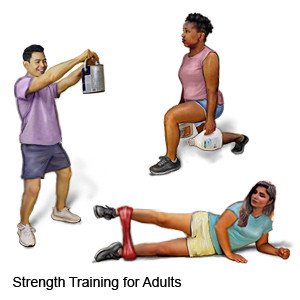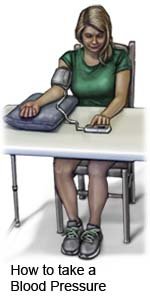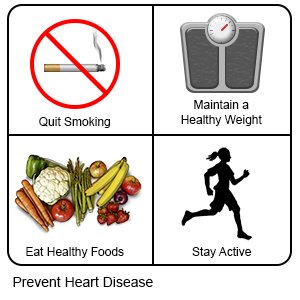Metabolic Syndrome X
Medically reviewed by Drugs.com. Last updated on Apr 6, 2025.
What is metabolic syndrome?
Metabolic syndrome is a group of medical conditions that can increase your risk for heart disease, stroke, or type 2 diabetes. You may have metabolic syndrome if you have at least 3 of the following medical conditions:
- High triglycerides (a type of fat in your blood)
- Low HDL cholesterol (good cholesterol)
- High blood pressure
- High blood sugar levels
- Extra abdominal fat
What increases my risk for metabolic syndrome?
The exact cause of metabolic syndrome is not known. Your risk for metabolic syndrome increases if you have insulin resistance. Insulin is a hormone that helps your body take sugar out of your blood and use it for energy. Insulin resistance means your pancreas keeps making insulin but your body cannot use it correctly. Your risk for metabolic syndrome also increases as you age, if you are overweight or obese, or you are not physically active.
What are the signs and symptoms of metabolic syndrome?
Most people with metabolic syndrome do not have any signs or symptoms. You may have more thirst or hunger than usual, urinate more often, or have blurred vision or headaches.
How is metabolic syndrome diagnosed?
Your healthcare provider will examine you and ask about other medical conditions you may have. He or she may ask if you have a family history of metabolic syndrome, diabetes, obesity, or heart disease.
- Blood tests are used to check your glucose and cholesterol levels.
- An oral glucose tolerance test is used to check how glucose changes your blood sugar level. Your blood sugar level is tested after you fast for 8 hours. Then you are given a glucose drink, and your blood sugar level is tested again. The test measures how high your blood sugar level rises from the glucose drink.
How is metabolic syndrome treated?
You may need any of the following, depending on health conditions you have:
- Blood pressure medicine helps lower your blood pressure. A controlled blood pressure helps protect your organs, such as your heart, lungs, brain, and kidneys. Take your blood pressure medicine exactly as directed.
- Cholesterol medicine helps lower the amount of cholesterol in your blood. Cholesterol medicine works best if you are also physically active and eat healthy foods that are low in certain kinds of fats. Some cholesterol medicines may cause liver problems. You may need to have blood tests while you are taking this medicine.
- Hypoglycemia medicine helps lower the amount of sugar in your blood.
How can I manage metabolic syndrome?
- Maintain a healthy weight. Ask your healthcare provider what a healthy weight is for you. Ask him or her to help you create a weight loss plan if you are overweight. Weight loss can help lower cholesterol, triglycerides, blood pressure, and blood glucose levels. It can also raise HDL (good cholesterol).
- Limit sodium (salt) as directed. Too much sodium can affect your fluid balance and blood pressure. Your healthcare provider will tell you how much sodium and potassium are safe for you to have in a day. He or she may recommend that you limit sodium to 2,300 mg a day. Your provider or a dietitian can help you find ways to limit sodium. For example, if you add salt while you cook, do not add more salt at the table. Check labels to find low-sodium or no-salt-added foods. Some low-sodium foods use potassium salts for flavor. Too much potassium can also cause health problems.

- Follow the meal plan recommended by your healthcare provider. A dietitian or your provider can give you more information on low-sodium plans or the DASH (Dietary Approaches to Stop Hypertension) eating plan. The DASH plan is low in sodium, processed sugar, unhealthy fats, and total fat. It is high in potassium, calcium, and fiber. It is high in potassium, calcium, and fiber. These can be found in vegetables, fruit, and whole-grain foods.

- Be physically active throughout the day. Physical activity, such as exercise, can help lower your blood pressure, cholesterol, and blood sugar levels. Exercise can also help raise your HDL level and help you to lose weight. Ask your healthcare provider to help you create a physical activity plan. Aim to get at least 30 minutes of exercise, 5 days each week. You can break activity into smaller amounts that add up to 30 minutes. Also include strength training at least 2 times each week. Your healthcare providers can help you create a physical activity plan.


- Check your blood pressure as directed. You may be asked to keep a record of your blood pressure and bring it with you to follow-up visits. Ask your healthcare provider what your blood pressure should be and how to check it.

- Limit or do not drink alcohol. Women should limit alcohol to 1 drink a day. Men should limit alcohol to 2 drinks a day. A drink of alcohol is 12 ounces of beer, 5 ounces of wine, or 1½ ounces of liquor.
- Do not smoke. Nicotine and other chemicals in cigarettes and cigars can increase your blood pressure and also cause lung damage. Ask your healthcare provider for information if you currently smoke and need help to quit. E-cigarettes or smokeless tobacco still contain nicotine. Talk to your healthcare provider before you use these products.

Call your local emergency number (911 in the US) or have someone call if:
- You have chest pain or discomfort that spreads to your arms, jaw, or back.
- You have a severe headache or dizziness.
- You have trouble thinking, speaking, or understanding others.
When should I seek immediate care?
- Your blood pressure is higher than your healthcare provider told you it should be.
When should I call my doctor?
- You have more thirst or hunger than usual.
- You urinate more frequently.
- You have blurred vision.
- You have questions or concerns about your condition or care.
Care Agreement
You have the right to help plan your care. Learn about your health condition and how it may be treated. Discuss treatment options with your healthcare providers to decide what care you want to receive. You always have the right to refuse treatment. The above information is an educational aid only. It is not intended as medical advice for individual conditions or treatments. Talk to your doctor, nurse or pharmacist before following any medical regimen to see if it is safe and effective for you.© Copyright Merative 2025 Information is for End User's use only and may not be sold, redistributed or otherwise used for commercial purposes.
Further information
Always consult your healthcare provider to ensure the information displayed on this page applies to your personal circumstances.
